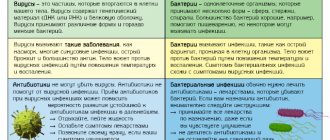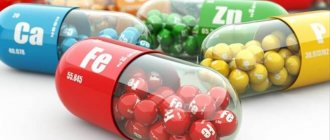What are probiotics for?
- Probiotics such as Lactobacillus spp., Bifidobacterium spp. and Saccharomyces boulardii, are strains of living microorganisms that are components of the normal intestinal microflora and are largely responsible for our health. They are obtained from food or in the form of medications.
- Probiotics improve antibacterial therapy because they combat microbial adhesion and the growth of pathogenic flora, have immunomodulatory properties, and improve the integrity of the intestinal barrier. In patients treated with antibiotics, probiotics help restore the microbial flora and increase treatment tolerance.
- Probiotics should be used cautiously, in consultation with a doctor, especially in premature infants and patients with severe immunodeficiency
Lists of probiotics and prebiotics contained in foods
Prebiotics include fructooligosaccharides such as inulin and galactooligosaccharides. But instead of focusing on these difficult words, include probiotics in your diet by eating more fruits, vegetables such as bananas, onions, garlic, leeks, asparagus, artichokes, soybeans, and whole grains.
To get more probiotics, look to fermented dairy products, including yogurt, kefir, and aged cheeses, that contain live cultures (such as bifidobacteria and lactobacilli). Don't forget non-dairy foods that also contain healthy crops, including sauerkraut, miso, tempeh, and cultured non-dairy yogurts.
When is a probiotic prescribed?
Taking antibiotics is necessary for treatment (if prescribed by a doctor). But antimicrobial drugs kill all bacteria. Thus, along with pathogens, the drugs kill the good bacteria in the gut, leaving the body defenseless against pathogens such as the fast-growing Candida albicans. After a course of antibiotics, this yeast can quickly become dominant in the small intestine.
Taking probiotics before, during, and after a course of antimicrobials can help maintain the balance of microorganisms in the digestive system. Many Candida sufferers doubt this, thinking that antibiotics will quickly kill off the good bacteria in probiotics. However, research has shown that probiotics are extremely effective during antibiotics.
What are prebiotics
Prebiotics, in their structure and functional significance, are biologically active components that stimulate the growth and reproduction of beneficial intestinal microflora. These components are not affected by digestive enzymes and are not broken down by gastric juice. In simple terms, prebiotics are substances that create a favorable environment in the lumen of the large intestine for restoring the balance of intestinal microflora.
These substances are of particular value for young children. From the moment of birth, the baby's intestines are sterile. After contact with the external environment, the mucous membrane of the large intestine of a newborn is populated by microorganisms of a bacterial nature. During the first year of life, the ratio of beneficial to opportunistic microorganisms is 9:1. Often, infants experience dysbiosis, which leads to the development of severe symptoms and digestive disorders. Products containing prebiotics help prevent the development of dysbiosis in newborns
The group of prebiotics includes the following components:
- Monosaccharides (sorbitol, raffinose, xylobiose).
- Oligosaccharides (fructooligosaccharides, soy oligosaccharides, galactooligosaccharides).
- Disaccharides (lactulose).
- Polysaccharides (hemicellulose, cellulose, gums, dextrin, mucus). Despite their benefits to the human body, probiotics and prebiotics perform different functions.
Features of therapy when taking antibiotics
To maximize the benefits of probiotics, space your intake with your antibiotics by at least two hours. In this case, less “good bacteria” will be killed by antibiotics in the intestines.
There is a lot of confusion about whether probiotics should be taken before, during, or after meals. Luckily, a 2011 study looked at exactly this question. The researchers created a synthetic digestive system in the laboratory and tested it in different scenarios using a commercial probiotic. They found that probiotics survived best when taken with meals, or 30 minutes before meals. When you take these medications or foods, just be sure to drink or eat them with or just before your next meal.
Side effect of antibiotics
A course of strong antibiotics can kill virtually all the bacteria in your digestive system, eliminating competition and clearing the way for fast-growing pathogenic flora to immediately try to fill the gap. Taking probiotics during antibiotic treatment can help slow the growth of pathogens by replenishing the gut with beneficial, healthy bacteria. Beneficial bacteria maintain balance and reduce the side effects of antibiotics. A 2008 study published in the Journal of Clinical Gastroenterology found that probiotics significantly reduced diarrhea in patients taking antibiotics.
If you do need to take antibiotics, a course of good probiotics will help and will provide two types of benefits: relief from the side effects of antibiotics, and protection of microflora balance in the long term.
Use of dietary supplements for therapy
- Probiotic preparations in liquid, capsules, powder or tablets are not a medicine. These are biologically active food supplements that can establish balance and bring the body into a normal state. Therefore, such drugs do not require a prescription.
- In any case, if the doctor, when prescribing antibiotics, did not suggest that you drink live bacteria, you should ask him the appropriate question. But which probiotics are best?
- It is believed that liquid probiotics are better because they take live bacteria, not frozen or put into a dormant state, allowing you to start working on restoring your gut flora immediately. This is especially important when it comes to the health of a child. The drug must contain strains of lacto- and bifidobacteria, which are what the gastrointestinal tract requires after treatment with antibiotics.
Treatment of intestinal infection: nothing more!
In summer, the problem of poisoning becomes more pressing than ever - the heat creates favorable conditions for the proliferation of pathogens. What medications really help get out of an unpleasant condition with minimal consequences?
To have a clear idea of how medications work (or don’t work) in case of poisoning, you need to understand what happens to the poisoned body. In the vast majority of cases, bacteria, and even more so parasites, have absolutely nothing to do with it!
Basically, intestinal infection develops against the background of infection with viruses: they are responsible for 70% of cases of infectious diarrhea in children and almost 90% in adults.
The penetration of intestinal pathogens into the body is accompanied by the release of a large amount of toxins, which cause characteristic symptoms. In this case, the mucous membrane of the stomach and intestines becomes inflamed - gastroenteritis develops.
However, despite the sometimes painful manifestations of poisoning, its causative agents are doomed: all intestinal infections are self-limiting, that is, the bacteria or viruses that caused them die not because they are affected by drugs, but because this is how nature intended. In this regard, almost any intestinal infection is akin to ARVI - treat it, don’t treat it, but you will still recover no earlier than the pathogen reaches the end of its development. And, fortunately, his life is short-lived: within 1–7 days after the manifestation of the disease, as a rule, recovery occurs.
We are used to swallowing handfuls of pills with or without reason. In case of poisoning, including. But not all drugs that we consider irreplaceable and vital are really needed. Let's remember everyone by name.
Regulators of water and electrolyte balance
The drugs in this group head the short list of drugs that are really necessary for poisoning. These include combinations of dextrose, potassium and sodium chloride, sodium citrate (Regidron, Trihydron, Hydrovit).
Diarrhea and vomiting, the main companions of intestinal infection, contribute to fluid loss and disruption of the acid-base balance in the body. This is the main danger of poisoning, which, if the resulting deficiency is inadequately replenished, leads to dehydration and electrolyte imbalance. Therefore, treatment should primarily be aimed at quickly restoring reserves.
The formula for success is simple: how much fluid you lost through vomiting and diarrhea, so much should be absorbed into the body with medications or, in extreme cases, with medicinal mineral water (of course, without gas). In cases where it is not possible to take rehydrants orally, intravenous drip administration of liquid, i.e., a dropper, is necessary.
Antidiarrheal drugs
Soviet and post-Soviet medicine is often aimed at a fierce fight against the symptoms of diseases, often regardless of whether this fight is beneficial for the body. Temperature? Antipyretic, despite the fact that this reduces the production of interferon and the immune response. Diarrhea? Antidiarrheal, despite the excretion of many toxins with feces.
Modern tactics for managing patients with acute intestinal infections are aimed at a conscious approach to symptom relief:
- If diarrhea is not accompanied by dehydration, it is much healthier to endure it than to stop it.
- If the problem becomes threatening and fluid loss cannot be restored with the help of medications, you still cannot do without antidiarrheal drugs.
The classic antidiarrheal drug is loperamide, which slows down intestinal motility and increases the transit time of intestinal contents. In addition, dioctahedral smectite has an antidiarrheal effect.
Adsorbents
The need to take adsorbents for intestinal infections is not entirely clear. Theoretically, adsorbents (activated carbon, pectin, dioctahedral smectite, etc.) bind toxins, preventing them from attaching to intestinal membranes.
However, for the drugs to work, they must enter the body before the toxins attach to the mucous membrane, which is not always possible to achieve in practice. And even if adsorbents are introduced on time, they, alas, do not prevent dehydration of the body, although they reduce the frequency of stool.
Probiotics
The use of drugs containing beneficial bacteria is aimed at restoring intestinal microflora. Research shows that they can indeed normalize its composition. However, of the entire considerable range, only products containing Lactobacillus casei GG (included in some dietary supplements, for example, Maxilak, Yogulakt) or Saccharomyces boulardii (Enterol) have a full-fledged evidence base. Their administration helps reduce the intensity of diarrhea and improve the condition of patients.
Antibacterial
Drugs that exhibit an antibacterial effect only work in cases of bacterial infection. In case of poisoning caused by viruses, they are useless, and it is these pathogens that most often become the cause of the disease.
It is sometimes possible to distinguish between a viral and bacterial infection by clinical manifestations. So, the first is more often accompanied by headache, muscle pain, weakness and fatigue, and the second is characterized by the appearance of blood in the stool. But most often it is almost impossible to clearly differentiate the two types of poisoning.
However, even when infected with bacteria, the advisability of taking antibacterial agents is questionable: after all, as we have already said, a few days after the manifestation of the disease, self-recovery occurs.
The exception is severe infections accompanied by high fever, blood in the stool, or dehydration, but in such situations the doctor must make the decision. By the way, in such cases hospitalization may be necessary.
Thus, from the long list of drugs that we consider almost a panacea for poisoning, we can limit ourselves to only two or three, or even just one drug - rehydrant. In this case, the treatment effect will be the same as when taking handfuls of tablets, but there will definitely be much fewer side effects. Which path to choose is up to you, because in the end your health is in your hands.
Marina Pozdeeva
Photo istockphoto.com
Products by topic: (rehydron), (loperamide), (diosmectite), (smecta), (activated carbon), (pectin), (enterol)
The effect of antibiotics on intestinal microflora
Almost any broad-spectrum antibiotic is a “sociopathic” substance. It kills not only pathogenic, but also beneficial microflora, resulting in dysbacteriosis.
Intestinal dysbiosis manifests itself in the form of:
- discomfort, unpleasant sensations in the abdomen;
- belching, bad taste in the mouth, bad breath;
- stool disorders (often diarrhea, but there may also be constipation), increased gas formation;
- intolerance to foods that were previously consumed without problems;
- constant feeling of fatigue, drowsiness;
- allergic reactions, vitamin deficiencies, etc.
All these troubles are associated with the death of beneficial microflora - the digestive organs, deprived of their “helper residents,” cannot function normally.
Do bacteria survive in the stomach?
The human stomach is an unfavorable environment for probiotics. Therefore, the more bacteria there are in a product, the higher the likelihood that some of them will survive and reach the intestines.
Research shows that the survival of bacteria in gastric juice is improved in the presence of simple carbohydrates: glucose, fructose, sucrose and lactose. Lactose is a sugar found in dairy products.
Plain yogurt or kefir with enough microorganisms can be a good source of probiotics.
You should not add sugar specifically to improve the survival of bacteria, since it does not contain useful microelements. You can add fruit instead and get an extra dose of vitamins and fiber.
Indications and contraindications for the use of probiotics
When to take probiotics
:
- Immunodeficiency states.
- Frequent acute respiratory infections.
- Diarrhea, constipation, colitis, intestinal dysfunction, IBD.
- AB therapy, hormone therapy.
- Urogenital diseases.
- Allergies, dermatoses.
- Stress, depression.
- Pregnancy III trimester.
Normalization of intestinal flora leads to normalization of the permeability of the intestinal wall and restoration of the immunological status.
Treatment with probiotics is usually well tolerated, but their use should be avoided if you have hypersensitivity to dairy products or drug components. Some medications may be contraindicated in pregnant women and young children. You can find out whether a specific product is approved for you from a nutritionist or from the instructions for use.
The role of gastrointestinal microflora
In the gastrointestinal tract, conditions for the reproduction and vital activity of microbes are the most favorable compared to any other parts of the body. More than 100,000 billion microorganisms simultaneously live in the intestines (this is an order of magnitude more than the number of body cells) - bacteria, fungi, yeast.
Among them there are some that are useful - primarily lacto
- both
bifidobacteria
and harmful ones - Klebsiella, Proteus, Enterobacteriaceae, etc. While there are more useful representatives of the microbiota, they “crush” the harmful ones, but if the harmful ones take over, dysbacteriosis develops, which we will discuss later.
Full digestion, and therefore your health, directly depends on the composition of the intestinal microbiota, because without proper absorption of nutrients from food, the body will not be able to function normally
. Therefore, it is very important to maintain symbiosis - the harmonious coexistence and balance of all the necessary representatives of the gastrointestinal microflora.
The microbiota works almost like a functional organ, interacting closely with the intestines and performing many important tasks:
- Metabolism
. As already mentioned, without normal microflora normal digestion is impossible. Beneficial microbes:
- help the intestines “absorb” beneficial substances - vitamins, amino acids, sugars, etc.;
- ferment those foods that cannot be digested (for example, fiber, the most important role of which we recently talked about
); - are indispensable in the synthesis of metabolites in the colon - useful substances that are formed from indigestible substances (the most important metabolites are vitamins K, B12, B8, short-chain fatty acids - an essential “fuel” for colon cells, etc.).
- Barrier function
.
Beneficial microorganisms not only themselves act as a kind of shield against various toxic substances and their pathogenic “colleagues,” but also help intestinal cells produce special mucus for better protection. The risk of colonization of the intestines by pathogenic bacteria is extremely low if all the necessary beneficial microorganisms live and thrive there. The fact is that beneficial and harmful bacteria need the same nutrients to live, so if there are more beneficial ones, they will simply take food away from the harmful ones, thereby preventing them from multiplying
(the so-called competition for metabolism).
The size and thickness of the mucous membranes, the intensity of irrigation of intestinal cells with mucus, etc. also depend on normal microflora.
- Immunity
. Normal functioning of the intestinal immune system is impossible without the balance of its microflora. The human intestine itself is a “reservoir”, in the Peyer’s patches of which immune cells live, which are necessary not only for the intestine itself, but also for the entire body. In turn, the immune system itself also regulates the composition and diversity of intestinal microflora. - "Service staff"
. Beneficial microbes also perform many other important functions, without which normal development and functioning of the intestines is simply impossible. They support the health of the mucous membranes and their enzymatic ability, are able to produce protective mucus themselves, help the cells of the gastrointestinal tract immune system mature, which work to eliminate harmful bacteria and viruses, and inactivate indole and skatole.
INTERESTING!
Recent studies have identified other functions of the gut microbiota. It turns out that some representatives of the “good” flora of the gastrointestinal tract can protect the body from inflammation and metabolic failures, while representatives of the “bad” flora can provoke not only these problems, but also other diseases, including behavioral and neurological disorders.
That is, the microbiota and immunity cooperate mutually beneficially, supporting each other and the entire body, including even the psyche, in good health. But all this idyll at a certain moment can be disrupted by a terrible beast - dysbiosis
.









